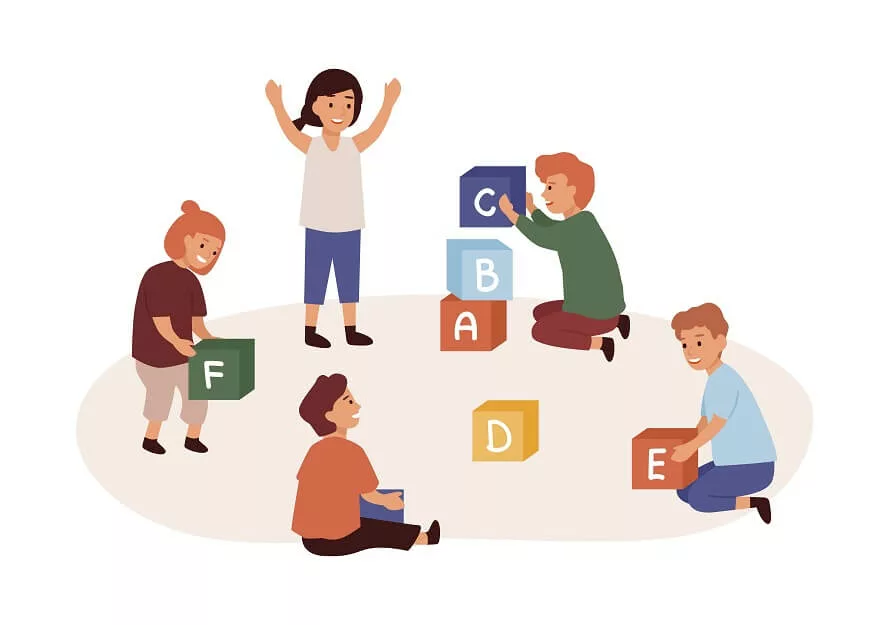Making friends can be a challenging task for some children, which often leaves them feeling lonely and depressed. It’s crucial for parents and caregivers to recognise these signs and provide support. Offering guidance can make a significant difference in their social well-being.
This article delves into signs of loneliness and practical tips to assist a lonely child in forging new friendships. From honing communication skills to engaging in group activities, these suggestions are tailored to boost confidence and facilitate meaningful connections.
Also Read: How To Stop Your Child from Lying – Follow These Tips
Loneliness and depression in children
Loneliness and depression in children are poignant concerns often underestimated in modern society. Historically, childhood was perceived as a carefree period, but today, children face myriad pressures.
Factors like increased screen time, reduced outdoor activities, and academic stress contribute to feelings of isolation. Furthermore, childhood depression isn’t merely transient sadness; it’s a profound emotional and mental struggle that can affect their developmental trajectory.
Early detection and intervention are imperative. By fostering open conversations and promoting understanding, we can offer support to the most vulnerable, ensuring they don’t suffer in silence amidst the bustling world around them.
Also Read: How to Improve Problem Solving Skills in a Student?
Symptoms of loneliness in children
Here are some symptoms indicating loneliness in children:
- Changes in Behaviour: A child might become more withdrawn, avoiding interactions with peers or family. Conversely, some may display disruptive behaviour, seeking attention in other ways.
- Emotional Fluctuations: Loneliness can trigger mood swings, from sadness to irritability. A child might seem unusually emotional or sensitive.
- Decline in School Performance: A drop in academic performance, reduced attention span, or a lack of interest in school activities can signal underlying emotional struggles.
- Sleep Disturbances: Disturbed sleep patterns, nightmares, or difficulty falling asleep can arise from feelings of isolation.
- Physical Symptoms: Complaints of unexplained aches, pains, or frequent illnesses might indicate emotional distress rather than just physical ailments.
- Clinginess: A lonely child might become overly reliant on a particular friend or show increased dependence on adults, fearing further isolation.
- Reduced Participation: Declining invitations to play, avoiding school events, or showing little interest in group activities are signs of social withdrawal.
- Expressed Feelings: Some children might vocalise feelings of sadness, boredom, or state explicitly that they feel alone or have no friends.
Also Read: Everything about Active Listening & Its Importance
Is your child feeling lonely and depressed? Tips to help a lonely child
Here are some strategies and tips to help a lonely child make friends:
Empathise and Validate Their Feelings
The first step is to acknowledge and understand the child’s feelings. Avoid minimising their emotions or offering platitudes like “You’ll make friends soon.” Instead, listen to them, empathise, and let them know that it’s okay to feel the way they do. Sometimes, just knowing that someone understands can be a significant source of comfort.
Boost Their Confidence
Children often refrain from socialising due to fear of rejection or ridicule. Encourage your child by pointing out their strengths and talents. Enrolling them in a class or activity that they are passionate about can also help boost their self-esteem, be it art, dance, sports, or any other interest.
Practise Social Skills
Equip your child with the tools they need for friendship-building. Practise basic conversational skills, teach them to introduce themselves, maintain eye contact, and listen actively. Role-playing can be a fun way to familiarise them with various social scenarios.
Arrange Playdates
If you’re aware of any children in the neighbourhood or at school who share similar interests or are of the same age, consider arranging a playdate. Start with one-on-one interactions before moving to group settings, as this can be less overwhelming for a child who’s struggling socially.
Enrol in Group Activities
Clubs, workshops, and community groups offer a structured environment where children can engage with peers. They’ll have something in common to start conversations, which can help break the ice.
Create Opportunities for Interaction
Visit local parks, libraries, or recreational centres regularly. Such environments give children a chance to interact with their peers naturally. While it’s essential to provide opportunities, avoid putting too much pressure on them to make friends.
Stay Involved with School
Engage with teachers and school staff to understand your child’s social dynamics. They can provide insights about potential friends or group activities suitable for your child.
Teach Them to Handle Rejection
Not every interaction will result in friendship, and that’s okay. Equip your child with the understanding that everyone faces rejection at some point, and it’s not a reflection of their worth.
Seek Professional Help if Needed
If your child’s loneliness persists or if they exhibit signs of extreme social anxiety, consider seeking guidance from a paediatrician, counsellor, or child psychologist. Sometimes, professional intervention can provide tailored solutions for your child’s unique situation.
Be Patient and Persistent
Building friendships is a journey, not a destination. It might take time for your child to find the right friend or group of friends. Celebrate small successes along the way and continuously provide support and encouragement.
Stay Connected as a Family
While helping your child make friends outside the family is crucial, it’s equally important to maintain strong family bonds. Spend quality time together, engage in activities as a family, and ensure that your home is a safe haven where your child feels loved and accepted.
Also Read: Cultivating Compassion: Teaching Kids to Be Kind to Themselves and Others
In the words of C.S. Lewis, “Friendship is born at that moment when one person says to another, ‘What! You too? I thought I was the only one.’” By helping your child take those initial steps towards friendship, you pave the way for countless such magical moments. With patience and understanding, every child can enjoy the joy of companionship.
EuroSchool recognises the pivotal role that friendship plays in a child’s overall development and wellbeing. We curate an environment that promotes camaraderie and teamwork. Through diverse extracurricular activities, group projects, and sports, children are given ample opportunities to interact, collaborate, and bond.










